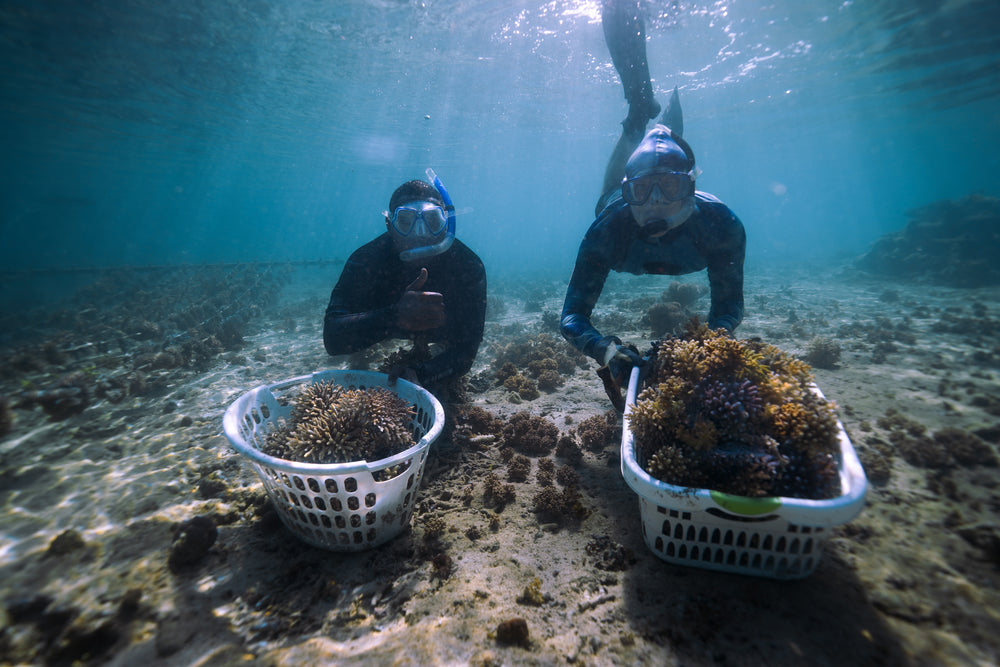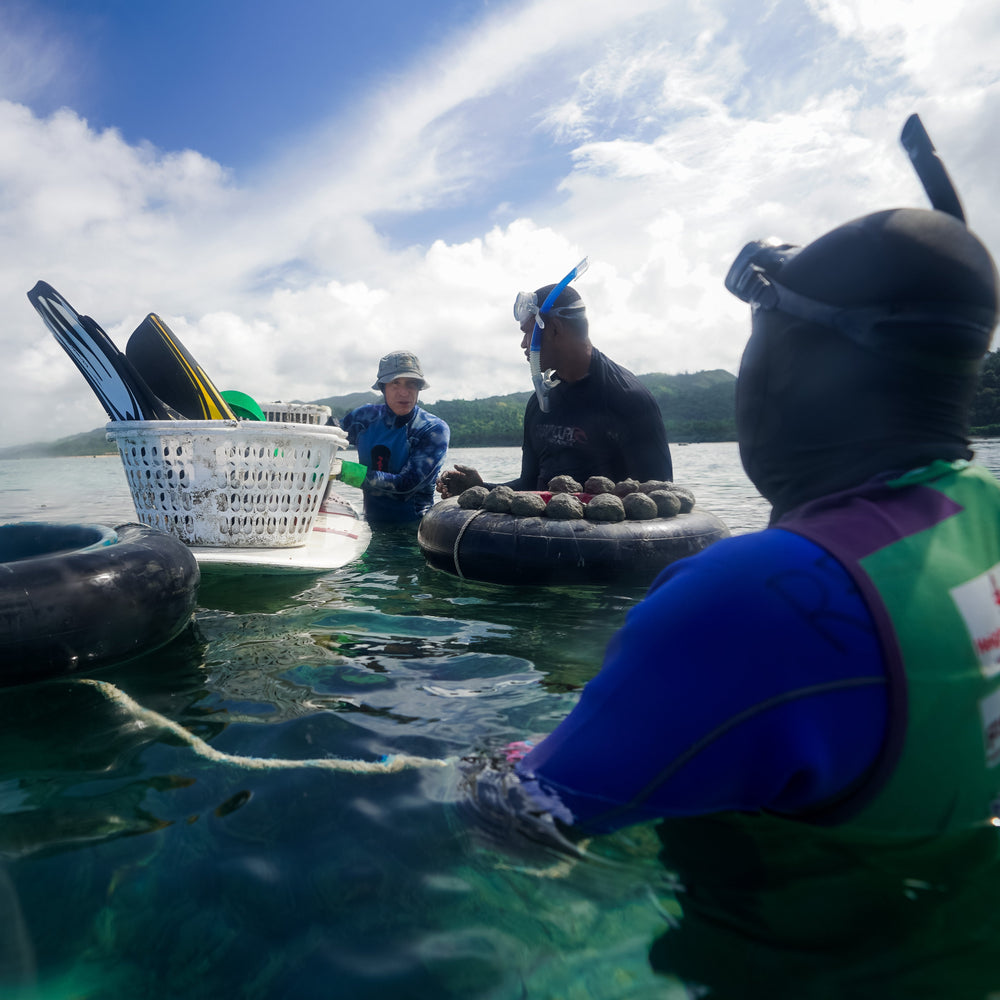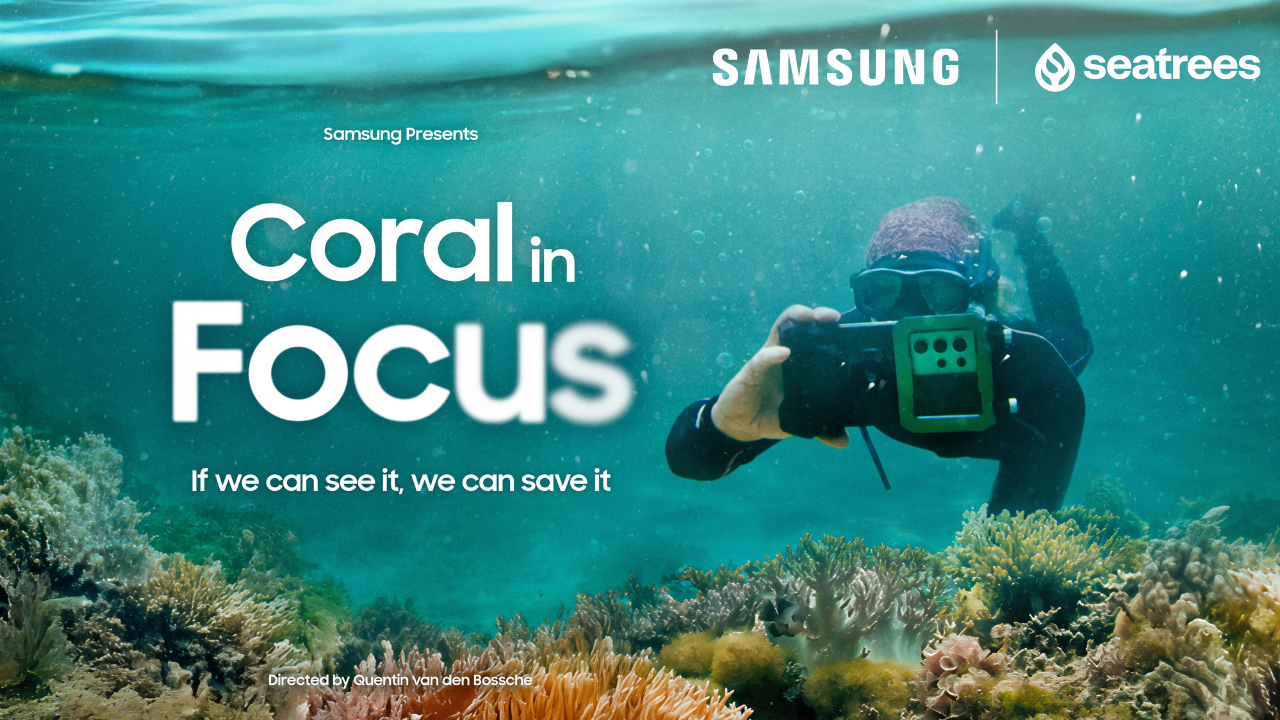Restore Coral Reefs in Fiji
Fiji’s reefs are in crisis. Rising ocean temperatures, overfishing, land-based pollution, and outbreaks of the invasive Crown-of-Thorns Starfish (COTS) have left many reefs degraded and vulnerable to collapse.
To change this, Seatrees has partnered with Reef Explorer to scale up a climate-smart restoration program that strengthens the resilience of reefs that are still holding on. Rather than replanting dead or collapsed reefs, the project targets healthy reef zones — enhancing them by planting coral genotypes that have survived past heatwaves. These fragments are grown in rope nurseries before being outplanted, helping build breeding populations of thermally tolerant coral.
At the heart of this project is the local community. Reef Explorer works closely with village leaders, fishers, and youth to revive traditional tabu (no-take) marine protected areas, educate on sustainable practices, and ensure that reefs are protected long after they’re planted.

About this Project
Seatrees is working with Reef Explorer to restore coral reefs along the Coral Coast of Viti Levu, Fiji's largest island. Through coral propagation, out-planting, and community-based reef management, this project enhances reef resilience in the face of climate change.
The project focuses on:
- Breeding heat-tolerant coral colonies for out-planting
- Removing invasive Crown-of-Thorns Starfish (COTS)
- Long-term reef monitoring using photogrammetry
- Partnering with local villages to implement sustainable fishing and marine zoning practices
Restoration is done in well-established no-take marine protected areas to maximize coral survival and biodiversity outcomes.

Why It Matters
Fiji’s reefs are under threat from bleaching, overfishing, coastal pollution, tourism pressure, and Crown of Thorns Starfish (pictured here). When herbivorous fish populations drop due to overfishing, algae overwhelms coral, leading to reef decline and loss of marine biodiversity.
This project's holistic approach tackles these pressures by integrating active coral gardening, local education, and traditional marine protection practices (‘tabu’ zones). The goal is to build a self-sustaining, biodiverse reef system that supports both marine life and local communities.

Coral Species
The project site supports:
- Over 200 species of hard (scleractinian) corals
- Dozens of soft coral species
- 250+ species of reef fish
- Invertebrates including sea cucumbers, giant clams, and octopus
Corals restored include Acropora, Hydnophora, Porites, Pocillopora, and Pavona species.
Here’s how coral planting in Fiji works:

Resilience-first coral selection
Coral fragments are collected from colonies that have already survived past heat stress events. These are the toughest of the bunch — chosen specifically for their ability to withstand warming waters.

Coral rope nurseries
These coral fragments are secured to rope nursery lines suspended in the water column, where they grow for 6–12 months in ideal, predator-free conditions.

Outplanting to the reef
Once large enough, the corals are planted directly into healthy reef zones. Depending on the site, they’re attached to hard reef substrate or vertical structures using clips or marine epoxy.

Ongoing protection and predator removal
The team continuously removes Crown-of-Thorns Starfish (COTS), a major predator responsible for large-scale coral loss across the Pacific.

Monitoring through photogrammetry
Biannual 3D reef surveys using smartphone cameras allow scientists and local teams to track reef growth and health over time. This method produces high-resolution 3D visualizations of the reef, showing where coral cover is increasing and how biodiversity is returning.

Community training and co-management
Local villagers and youth are trained in coral restoration techniques and monitoring methods. Traditional and scientific knowledge are merged to strengthen village-based reef stewardship.
Impact Metrics

Reef Explorer
Reef Explorer is a leading coral restoration organization in Fiji, collaborating with local communities since 2006. Their work is grounded in science and cultural partnership, advancing climate-resilient reef ecosystems and local marine management. Reef Explorer supports research, coral taxonomy, and adaptation-focused coral breeding programs across Fiji.
Their restoration approach is not about replanting dead reefs, but enhancing thriving ones by creating breeding populations of thermally resilient corals. Their work is backed by institutions like Mission Blue, NatGeo, and the Fiji government.


